In Arabic, Matala' means the place from which astronomical bodies rise; Matala' al-Hilal refers to the place on the horizon where the crescent Moon rises. Nowadays, it is generally known that each country has its crescent Moon. The crescent Moon seen in Belgium is for the people of Belgium; the crescent Moon seen in India is for the people of India; the crescent Moon seen in Pakistan is for the people of Pakistan; and the crescent Moon seen in Britain is for the people of Britain. Despite this ruling seeming to be very reasonable, it is, in fact, this ruling of local moonsighting which conflicts with the Islamic philosophy of unity of Ummah and Khilafah.
: ھُوَ الَّذِیۡ جَعَلَ الشَّمۡسَ ضِیَآءً وَّ الۡقَمَرَ نُوۡرًا وَّ قَدَّرَہٗ مَنَازِلَ لِتَعۡلَمُوۡا عَدَدَ السِّنِیۡنَ وَ الۡحِسَابَ ؕ سورۃ یونس :
He (Allah) gave the sun (its) radiant glow and the moon its light, He determined their phases precisely, so you might (calculate) the passing years and keep time.
Surah Yunus is a Makkan Surah in which there are arguments for monotheism. Fasting (Sowm) and prayer were not obligatory in Makkah then, but the Arabs used to determine their dates with the Moon for their daily life. Similarly, they used to determine the months of Hajj and sacred months by the Moon. When the fasting of Ramadan became obligatory after the migration to Madinah, fasting in the month of Ramadhan became obligatory, as did the act of Hajj. The holy Quran commanded that the month of Ramadan, the sacred months, and the days of Hajj with the crescent must be determined.
Islam is not only a religion of worship or rituals but also a religion of a caliphate and state system. The Hijri calendar was created during the caliphate of Hazrat Umar Farooq. Different regions and states were part of the Islamic Caliphate. For example, the Holy Hijaz (Saudi Arabia) and Iran shared the exact date and calendar, even though they differed by thousands of miles. Similarly, this system continued till the end of the Ottoman Caliphate, when the crescent of the Ottoman Caliphate was announced in Egypt; Eid would also be celebrated in Anatolia. In addition, when the crescent was spotted in the United subcontinent of India pre-1947, Ramadan and Eid were celebrated on the same day in united India. In the 20th century, when the unity of Muslims was divided, the Ottoman Caliphate ended, and the united subcontinent of India was also divided.
Hence, new countries came into being through geopolitical division, and every country began declaring its crescent. For example, Turkey developed its crescent sighting system; Arab countries established their separate system of moonsighting. Similarly, the announcement of the crescent Moon was the same in United India. However, after the partition of India, the announcement of the crescent of India and Pakistan was divided. Then, if the crescent were sighted in Dhaka in East Pakistan, it would be announced in Lahore. When Bangladesh was established in 1971, Pakistan became divided, resulting in the announcement of the crescent also being divided. Now Pakistan has its announcement, and Bangladesh has its announcement of the crescent. In this way, just as this Ummah was divided politically, it was also divided on the crescent issue. This division was considered a desirable practice for the validity of local moonsighting. However, this was not a good practice. Muslims of every region and country should see the Moon. But it is necessary to see the crescent of the month of Shaban, the month of Ramadan, the month of Shawwal, and the month of Dhul-Hijjah. If it is seen, then it should be declared; if it is not seen in one area, but it is seen in another location, then it must be followed.
There are two groups of Islamic jurists on the issue of different horizons of moonsighting. One group is the Hanafi, Maliki, and Hanbali schools of jurisprudence
Allama Abd al-Rahman al-Jaziri wrote in his famous book Fiqh Al -al Madhahab al-Aba,ah.
"If the crescent Moon is sighted on one location on the earth, fasting becomes obligatory in all areas irrespective of distance, whether far or near. According to three imams (Imam Abu Hanifa, Imam Malik, and Imam Ahmad bin Hanbal, may God bless them and grant them peace), the difference in the moonsighting horizon is invalid.
إذا ثبت رؤية الهلال بقطر من الأقطار وجب الصوم على سائل الأقطار، لا فرق بين القريب من جهة الثبوت والبعيد إذا بلغهم من طريق موجب للصوم. ولا عبرة باختلاف مطلع الهلال مطلقاً، عند ثلاثة من الأئمة؛ وخالف الشافعية، (الفقہ علی المذاھب الاربعۃ)
The majority of the scholars believe in global moonsighting. Of course, Imam Shafi'i's Fatwa is different. According to Imam Shafi, )may God bless him and grant him peace(، it is about 124 km. Later, scholars of the Shafaee school of Fiqh also adopted the ruling of global moonsighting of three imams (Imam Abu Hanifa, Imam Malik, and Imam Ahmad bin Hanbal, may God bless them and grant them peace)
Imam Ahmad Raza Khan, (may God bless him and grant him peace), is the only thinker in the subcontinent who emphasized the Islamic jurisprudential perspective of global moonsighting for the unity of the Ummah and Khilafah.
In his work Fatawi Rizwiyyah, Imam Ahmed Raza Khan Barelvi, (may God have mercy on him) stated that practicing different moon-sighting horizons is not accepted within the Hanafi Fiqh. This view is upheld by Imam Abu Hanifa, Imam Abu Yousaf, and Imam Muhammad. It is considered Dhair al Rewayah, as agreed upon by these scholars, and it is not permissible to deviate from this established framework in Hanafi fiqh.
Responding to a query from Maulana Riasat Ali Khan on the validity of a witness from another city regarding the sighting of the moon for Eid al-Adha when the distance is considerable, Imam Ahmad Raza Khan, may God bless him and grant him peace, confirmed that such testimony would be valid as per Shariah, even if the distance between the places is significant. (one month duration of distance)
Author of Encyclopaedia Hanafiya, Sadr al-Sharia Allama Amjad Ali Azmi Rehmatullah Alaihi wrote in his book Bihar Shariat.
"If the crescent is sighted in a country, it is valid for that country and the world. But according to them, this ruling of the crescent for another country should be proved by Shari'a evidence on the same date."
(Bahar Shariah Volume I, Kitab al-Sowm)
Furthermore, Imam Ahmad Raza Khan rejected the notion advocated by scholars such as Allama Shami and Allama Abdul Hai Lakhnavi, regarding different moonsighting horizons for Eid-ul-Adha and Shawwal-ul-Mukarram.
Regarding the hadith from Sahih Muslim (Hadith e Kuraib), Imam Ahmad Raza Khan emphasized that when credible evidence of moon sighting is received, the people of the East should fast or celebrate Eid, based on the Shariah guidelines if the people of the West have already sighted the crescent.
Imam Ahmad Raza Khan demonstrated his commitment to following the Shariah when faced with a situation where conflicting moon sighting dates arose. He made a decisive ruling on the end of Ramadan and the celebration of Eid in Bareilly Sharif, based on the information provided by individuals from Egypt who had seen the crescent before the local community in Braily.
The UK and Europe Hilal Forum have adopted the Matla' Hilal based on the opinions of Hanafi, Maliki, and Hanbali jurists, as well as the teachings of Imam Ahmad Raza Khan. According to the majority of scholars in the Hanafi, Maliki, and Hanbali schools of thought, variations in moonsighting horizons are deemed unacceptable unless an extensive distance is involved.
 THE UK AND EUROPE HILAL FORUM
THE UK AND EUROPE HILAL FORUM



Add new comment